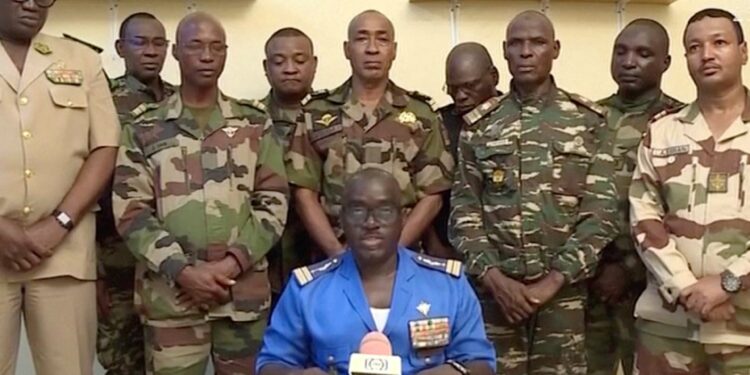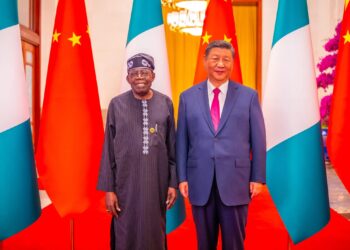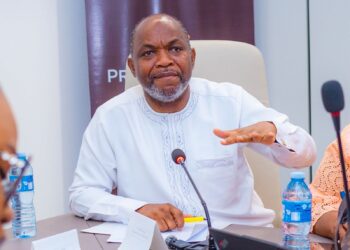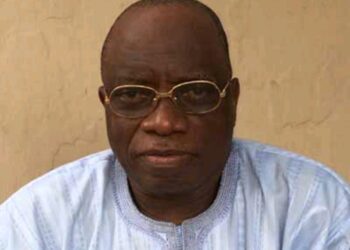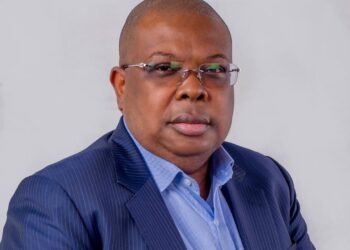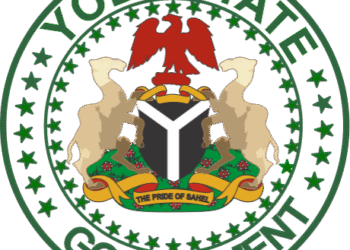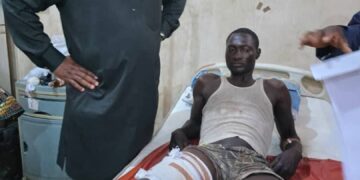There Is No Good Road To Niger
By Dare Babarinsa
THE GUARDIAN
03 August 2023
Niger Republic has nothing to offer Nigeria, but trouble. It is one of the largest countries in the world and one of the poorest.
Recently, an ambitious commander of the presidential guard seized power, imprisoned the President and incited the population to riot against their own elected leaders.
Good drama to enliven the lives of the ordinary people in Niamey who have really nothing to be excited about.
The self-proclaimed strongman then dared Nigeria and the international community to interfere.
The emboldened citizens ran to attack the French embassy, blaming the French and other Western powers for their country’s woes.
Few months or years down the road, the handsome self-proclaimed strong man would be dead, exiled (if he is lucky) or imprisoned.
In Niger, often there is no exit formula for the leader.
Bad luck!
President Bola Ahmed Tinubu should be worried about the illegal regime in Niamey, but then he should allow time to solve the problem.
Of course, despite the boastfulness of the new strongman, General Abdourahamane Tchiani, the Nigerien military has no fighting chance against even a brigade of the Nigerian Army.
Though, Niger is larger than Nigeria, the population is less than 25 million, half of which is Hausa, the dominant ethnic group in Northern Nigeria.
Tchiani was the commander of the presidential guard, a post he had held for more than 10 years.
When Mohamed Bazoum won the presidential election in 2021, Tchiani became one of the pillars of his new government. In recent months, Bazoum had contemplated appointing another commander of the presidential guard.
He delayed. Tchiani moved first and Bazoum lost his job on July 26, 2023.
President Bola Ahmed Tinubu had just been elected Chairman of Economic Community of West African States (ECOWAS).
He had proclaimed that ECOWAS would not tolerate any self-proclaimed ruler who comes to power through a coup d’état or any other unconstitutional means. Then the Tchiani challenge.
Before him, coup plotters had seized Mali, Guinea and Burkina Faso. All these show the fragility of African states when the guard of the house can chase away the landlord and proclaim himself the new master. This is unacceptable.
The first President of Niger Republic after independence was HamaniDiori, the leader of the Rassemblement Democratique African (RDA), who instituted a one-party state.
He was to rule for 14 years. He opened up the uranium mine at Arlit with the help of France. His country, large and poor, is strategically located, sharing boarders with Nigeria to the South, Benin Republic and Burkina Faso to the Southwest, Chad to the East, Libya to the Northeast, Mali to the West and Algeria to the Northwest.
The country is landlocked, but it has the key to the borders of seven other African countries.
Everyone is, therefore, interested in what is happening in Niger for good reasons.
Its army has lean muscle, and even in full strength, it will be considered inferior to AsariDokubo’s militant group.
Right from the First Republic, the Nigerian government realised that it cannot allow Niger to become an ungoverned space.
It was not surprising then that Diori considered himself the problem of Nigeria, the big brother to the South.
Diori was President of Niger from 1960 to 1974. He was a good friend of Nigeria and a good friend of France.
However, when France supported Biafra during the Civil War, Diori stood with Nigeria. He survived an attempted coup in 1963 and an assassination attempt in 1965.
In 1974, he was toppled in the first successful coup in Niger. His wife, a fashionable woman of exquisite taste, was killed.
The vengeful soldiers accused Mrs. Diori of drinking bottled water imported from France.
Her husband died in detention. His successor, Colonel Seyni Kountche, ruled with iron hand from 1974 until his death in 1987.
Kountche survived three coup attempts. Colonel Ali Saibou, who transformed himself into a civilian President, after a sham election in 1989, succeeded him.
After series of turmoil and political changes, Mahamane Qusmane became the first properly elected President of Niger on March 27, 1993. Qusmane was toppled in another military coup led by Colonel Ibrahim Bare Mainassara in January 1996.
Mainassara again transformed himself into an elected President after a sham election in 1996.
He held office until he was assassinated at the Niamey airport in April 1999. The leader of the assassins, Major Daouda Malam Wanke, proclaimed himself the new President.
Wanke conducted what was considered a credible election and he handed over power to elected President Tandja Mamadou in December 1999.
Mamadou was toppled in another coup d’état led by SaluDjibo in February 2010. Djiboorganised a one-year Transition Programme that gave birth to the election of President Mahamadou Issoufou in 2011.
He survived an attempted military coup and was able to hand over to an elected successor, Mohamed Bazoum, who came into office in April 2021.
Three weeks earlier, there was an attempted coup to thwart his inauguration.
On July 26, 2023, Bazoum too was toppled by the commander of his presidential guard.
Niger has now joined the Rogue Club, which includes Mali, Guinea and Burkina Faso.
The young soldier thinks it is gallant and romantic to roar into the presidential palace, kidnap the President and proclaim yourself the new strong man.
All members of the Rogue Club are delivering anti-Western rhetoric and are embracing Russia and the Chinese as if it is compulsory for Africa to align with one power or the other.
Yet what Africa needs are self-assertion, discipline, integrity and capacity.
The lack of capacity is being exploited by new non-state players like Al-Qaida, ISIS and Boko Haram.
They are all active in the Sahara and the Sahel Regions, especially in all these rogue states.
The euphoria will soon end in Niger and the eyes clear like that of a drunkard waking up from the roadside gutter in the morning.
President Tinubu and his ECOWAS colleagues should know that the problem of Niger and the other Rogue Club cannot be solved by force, but we need to employ other weapons.
African leaders need to increase their capacity to solve African problems.
African youths watch CNN and African Magic channels and are ensnared by the lure of good life.
To make it in Africa today is not that you have acquired capacity to write like Wole Soyinka or Ngugi WaThiong’o. It is that you have money and the good life.
African youths are more interested in the magic of the Big Brother Africa because there is the gold pot at the end of the show and the possibility of sudden wealth.
That is the dream that is leading Africa into the nightmare. That is the enemy of Africa. It is that dream making the youths of Africa to perish in their hundreds in the Mediterranean Sea.
That is why the youths of Niamey are cheering those young gun-toting soldiers in open Landrovers as they drive into certain peril.
We need to leave Niger alone to its own rot and see how we can save our land from contamination.
ECOWAS has done the right thing by imposing sanctions. It now needs to wait for the next coup in Niamey and see which direction the country would go.
Russia may send in its Wagner mercenaries to prop up the new regime. If the Wagner mercenaries can help fight ISIS and other violent players, that will be good news in the short run.
But then we have to plan for the long run when Niger and the other rogue states would return to democratic governance. Democracy may be difficult and expensive, but so far, there is no alternative for the future prosperity of Africa.
We don’t know how long Tchiani would be able to cling to power. After the rhetoric.He has given himself the assignment to better the lives of his fellow citizens in a county in which 80 percent are considered poor and illiterate.
The hunger for power by the country’s elite has deprived Niger the opportunity to develop despite its mineral wealth, especially uranium. I will not be surprised if soon Tchiani starts importing table water from Russia for the presidential palace.
(vitalnewsngr.com)


